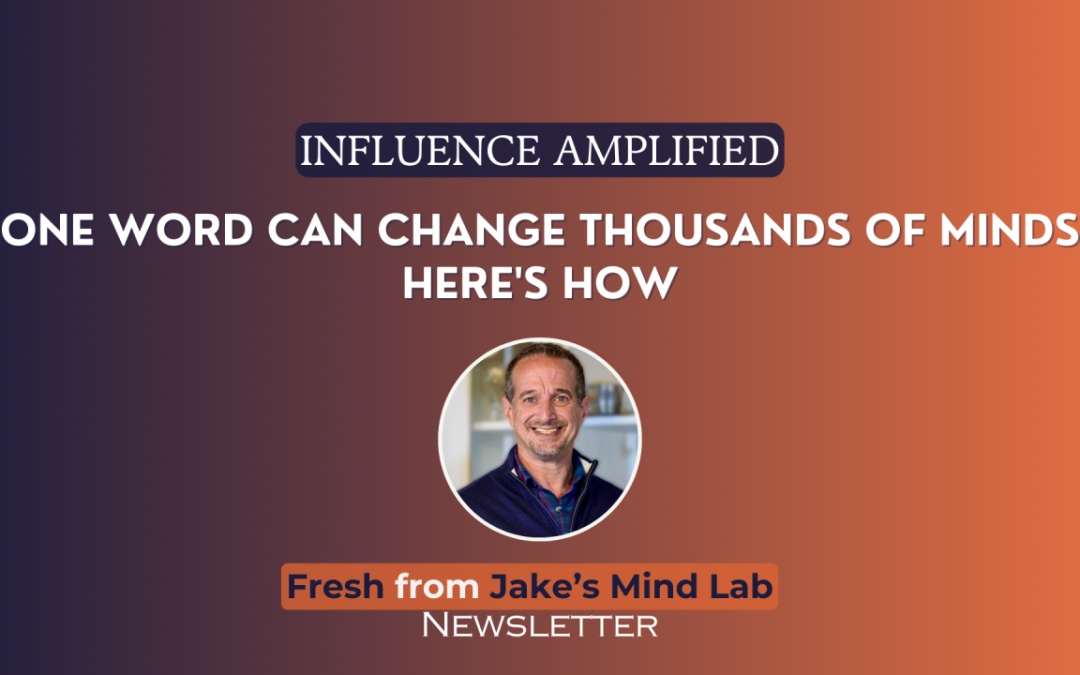Hey there, Mind-Labbers!
In this edition, we’re exploring evidence from brilliant minds at Stanford University, who conducted a fascinating study on the influence of word choice in shaping perceptions and preferences.
Picture this: They presented two groups of online readers with identical statistics on a 3-year rise in city crime rates. The only difference? One group read about crime depicted as a “ravaging beast,” while the other saw it described as a “ravaging virus.”
Now, here’s where it gets intriguing. When asked about their preferred solutions, the readers who encountered crime as a “beast” leaned towards a catch-and-cage approach. On the flip side, those who read about crime as a “virus” were more inclined towards removing unhealthy conditions. Astonishingly, the shift in one word accounted for a whopping 22 percent difference in preferred solutions – more than double the impact of gender or political affiliations!
The implications of this study are boundless. Just imagine the potential of tweaking a couple of words in your resume to land that dream job, in your sales pitch to seal the deal, or in everyday conversations to turn negative vibes into positive vibes.
To get you started on harnessing the power of words, here are five examples of how simple word changes can change your message:
1. Greeting: Instead of “How are you today?” try “What’s making you smile today?”
2. Resume: Swap “responsible for” with “drove” to convey action and impact.
3. Sales Pitch: Replace “cost” with “investment” to emphasize value.
4. Negotiation: Shift from “but” to “and” to create a collaborative tone.
5. Feedback: Exchange “wrong” with “different” to encourage open-mindedness.
Want another example?
So did I. Enter Ben Feldman. In the 70’s and 80’s, Ben sold more life insurance by himself than 1,500 of the 1,800 agencies in the US. Yes, by himself he did MORE THAN ENTIRE AGENCIES. Even during a hospitalization in his 80’s, he closed $15 million in new contracts in 28 days. Yes, FROM HIS HOSPITAL BED. One of the things credited to his success? He changed some words in his metaphors. In his portrayal of “life’s end,” he didn’t use the word “die”. He said they “walked out of life” and when they “walked out”, their insurance money “walked in”. By converting the involuntary act of dying into the voluntary act of walking out, he changed the face of his messaging. This was but one example of the many changes he made when wordsmithing.
Now, let’s dive into five more examples of word changes that can make a world of difference:
6. Presentation: Swap “problem” with “opportunity” to foster a proactive mindset.
7. Customer Service: Replace “policy” with “promise” to emphasize commitment.
8. Leadership: Shift from “follower” to “team member” to promote inclusivity.
9. Motivation: Exchange “failure” with “learning experience” to encourage growth.
10. Conflict Resolution: Instead of “blame,” use “accountability” to promote ownership and collaboration.
In the grand tapestry of human communication, every word is a brushstroke, painting the portrait of our interactions. So, as you navigate the labyrinth of language, remember the power you hold within each syllable. Until next time, keep crafting those conversations like the master artisans you are!
Jake out. <mic drop>

